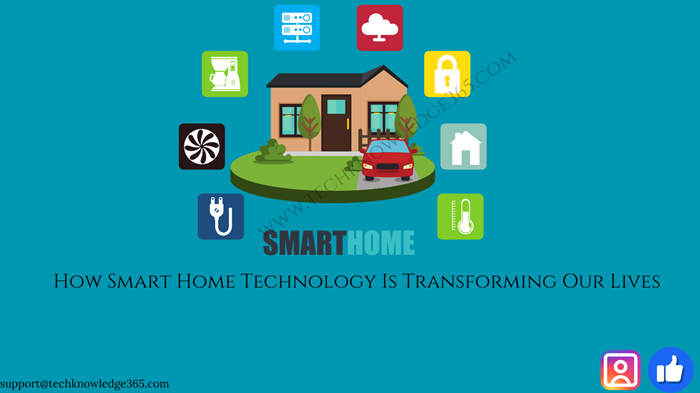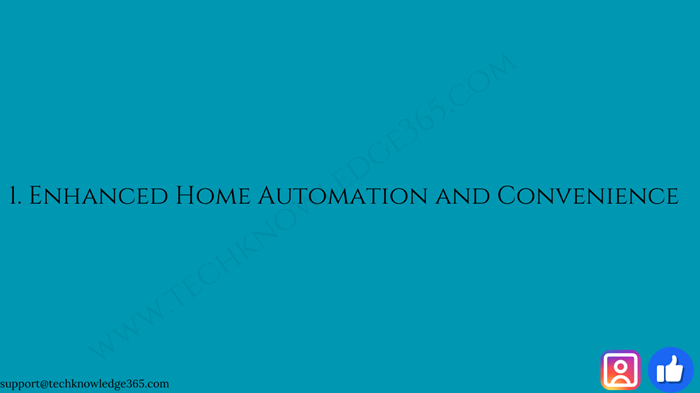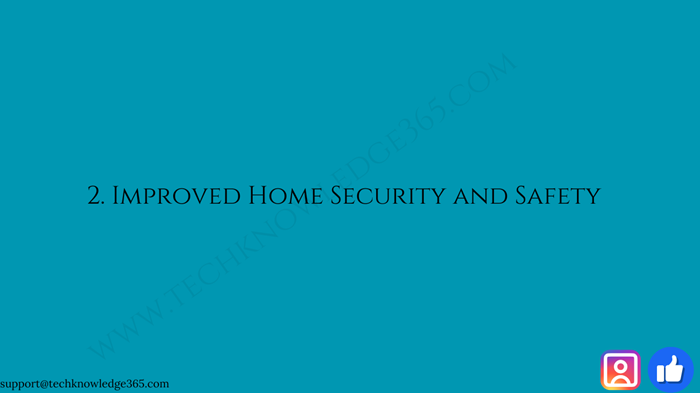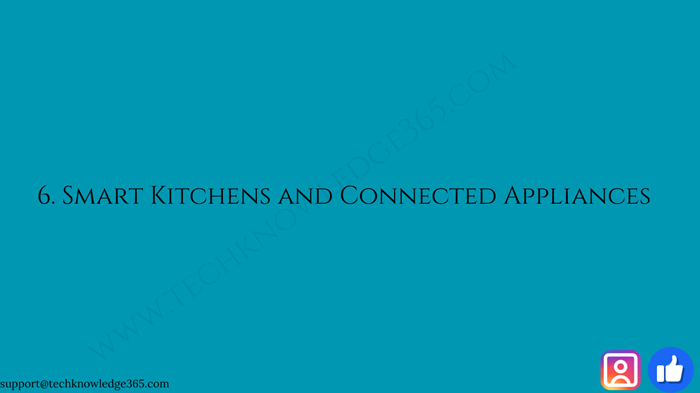Table of Contents
ToggleSmart Home Technology Is Transforming Our Lives

How Smart Home Technology Is Transforming Our Lives
Smart home technology has moved from being a futuristic concept to an essential part of modern living. With the rise of connected devices, artificial intelligence (AI), and the Internet of Things (IoT), our homes are becoming smarter, more efficient, and convenient than ever before. This blog post explores how smart home technology is transforming our daily lives, from enhancing comfort and security to improving energy efficiency and healthcare management

Enhanced Home Automation and Convenience
One of the most significant impacts of smart home technology is the automation of everyday tasks. Devices like smart lights, thermostats, and appliances can be controlled remotely or programmed to operate on schedules, offering unparalleled convenience.
- Smart Lighting: Lights can adjust automatically based on the time of day, occupancy, or even your mood.
- Smart Thermostats: Devices like Nest and Ecobee learn your temperature preferences and adjust settings automatically, saving energy while keeping your home comfortable.
- Voice Assistants: Virtual assistants like Amazon Alexa, Google Assistant, and Apple’s Siri allow hands-free control of multiple devices with simple voice commands.

Improved Home Security and Safety
Home security has been revolutionized by smart devices, making it easier to monitor and protect your home from anywhere in the world.
- Smart Cameras: Devices like Ring and Arlo provide real-time video feeds and send alerts for unusual activity.
- Smart Locks: Keyless entry systems allow you to lock and unlock doors remotely or grant temporary access to visitors.
- Smart Doorbells: Video doorbells with two-way communication enable you to see and talk to visitors even when you’re away.
- Smoke and Carbon Monoxide Detectors: Smart detectors send instant alerts to your phone, ensuring prompt action in case of emergencies

Energy Efficiency and Sustainability
Smart home technology plays a crucial role in promoting sustainability by optimizing energy consumption and reducing waste.
Energy-Saving Features:
- Smart Plugs and Outlets: Control and monitor energy use for individual devices, reducing phantom power consumption.
- Smart Thermostats: Adjust heating and cooling based on your schedule and presence, cutting down utility bills.
- Smart Irrigation Systems: Automate lawn watering based on weather conditions, conserving water and lowering costs.
- Solar Integration: Many smart homes are incorporating solar panel systems that sync with home energy management tools.

Personalized Entertainment Experiences
Entertainment systems have become smarter, providing immersive and personalized experiences tailored to individual preferences.
Entertainment Enhancements:
- Smart TVs and Streaming Devices: Content recommendations based on viewing history and voice-activated controls for seamless browsing.
- Smart Speakers and Audio Systems: Devices like Sonos or Bose offer multi-room audio with voice-controlled playlists and streaming services.
- Home Theaters: Customizable lighting and audio settings create a cinema-like experience at home.

Remote Home Monitoring and Control
The ability to control and monitor your home remotely has redefined convenience and peace of mind. Through smartphone apps and web dashboards, homeowners can:
- Adjust Thermostats: Turn heating or cooling systems on or off while on the go.
- Monitor Cameras: Check security footage in real time.
- Control Appliances: Start or stop appliances like washing machines, ovens, and coffee makers remotely.
- Receive Alerts: Get notifications about unusual activity or system malfunctions.

Smart Kitchens and Connected Appliances
Smart home technology has entered the kitchen, making cooking and meal preparation easier and more efficient.
Notable Smart Kitchen Devices:
- Smart Refrigerators: Track food inventory, suggest recipes, and notify you when items are running low.
- Smart Ovens: Preheat or adjust cooking settings remotely through an app.
- Smart Coffee Makers: Brew coffee on schedule or by voice command.
- Meal Planning Assistants: Devices that help with meal prep, suggesting recipes based on available ingredients.

Health and Wellness Monitoring
Smart homes are increasingly integrating health and wellness technology, making it easier to maintain a healthier lifestyle.
Wellness-Enhancing Devices:
- Smart Air Purifiers: Monitor air quality and adjust settings automatically.
- Smart Beds and Sleep Trackers: Adjust mattress firmness and track sleep patterns for better rest.
- Smart Health Devices: Blood pressure monitors, smart scales, and fitness trackers sync with health apps to provide real-time health data.
- Medication Reminders: Devices that remind seniors or individuals with chronic conditions to take medications on time

Senior Care and Assisted Living
Smart home technology is revolutionizing senior care by enabling independent living while ensuring safety.
Assistive Features for Seniors:
- Fall Detection Sensors: Notify caregivers or emergency services in case of falls.
- Medical Alerts: Devices that send automatic alerts in medical emergencies.
- Smart Home Assistants: Voice-controlled devices that help with reminders, calendar management, and more.
- Remote Monitoring: Family members can monitor the well-being of elderly loved ones through sensors and connected cameras.

Integration with Smart Ecosystems
As smart home ecosystems grow, more devices are compatible with each other, creating a seamless connected experience. Integration platforms like Apple HomeKit, Amazon Alexa, and Google Home allow central control of multiple devices from different manufacturers through a single interface

Future Trends in Smart Home Technology
Looking ahead, smart home technology will continue to evolve with advancements such as:
- AI-Powered Automation: Smarter AI algorithms that anticipate and respond to user preferences.
- Voice and Gesture Control: More intuitive interfaces that allow natural communication with devices.
- Enhanced Security Protocols: Improved cybersecurity features to combat data breaches.
- Smart City Integration: Integration with broader smart city infrastructure for enhanced convenience and efficiency.
Challenges and Considerations
Despite its numerous benefits, smart home technology also presents challenges:
- Privacy Concerns: Devices collect significant amounts of personal data, raising privacy and surveillance issues.
- Cost: Initial investment in smart home systems can be high.
- Technical Issues: Device compatibility and software bugs can cause occasional disruptions.
- Learning Curve: Some users may find the technology complex to set up and manage.
Conclusion
Smart home technology is transforming our lives by making our homes more convenient, secure, and efficient. From automating daily tasks and enhancing entertainment to improving health management and senior care, the benefits are extensive. As the technology continues to advance, smart homes will become even more integrated into our lives, making modern living more personalized, sustainable, and connected than ever before.
Embracing smart home technology isn’t just a trend—it’s the future of living. Are you ready to make your home smarter?
See More..
About Author:
Hello, I’m md ghulam ahmad, and I’m the founder of techknowlwdge365.
I’ve always been passionate about writing, and in college, I wrote a lot of content for my school’s website. After graduating, I pursued that passion professionally by creating content for small businesses.
I love what I do because it allows me to use my writing skills in a way that is directly applicable to people’s lives. My clients are all so grateful for the work that I do for them, and I feel so lucky every time someone tells me how much they appreciate my work.
I look forward to hearing from you!



